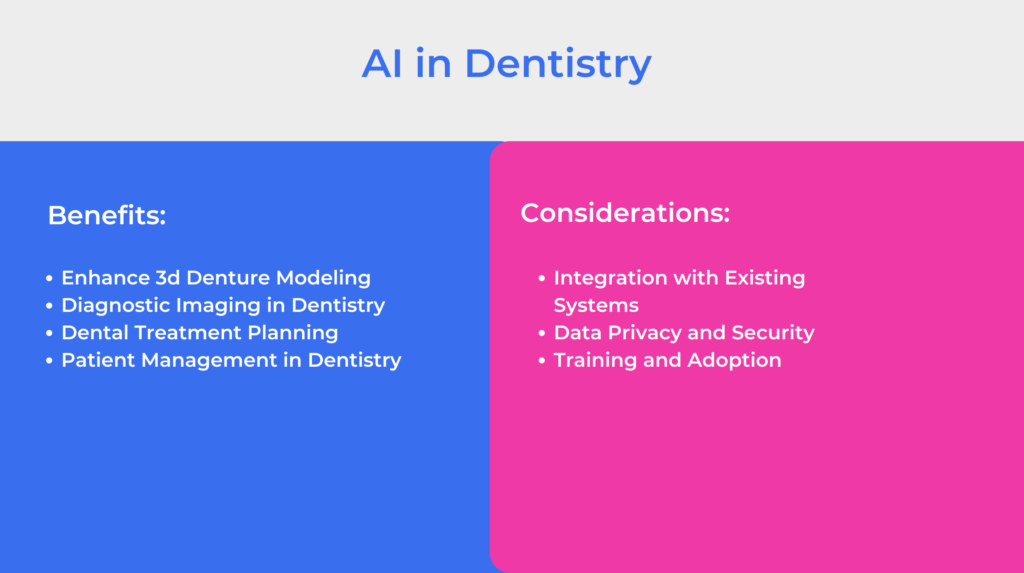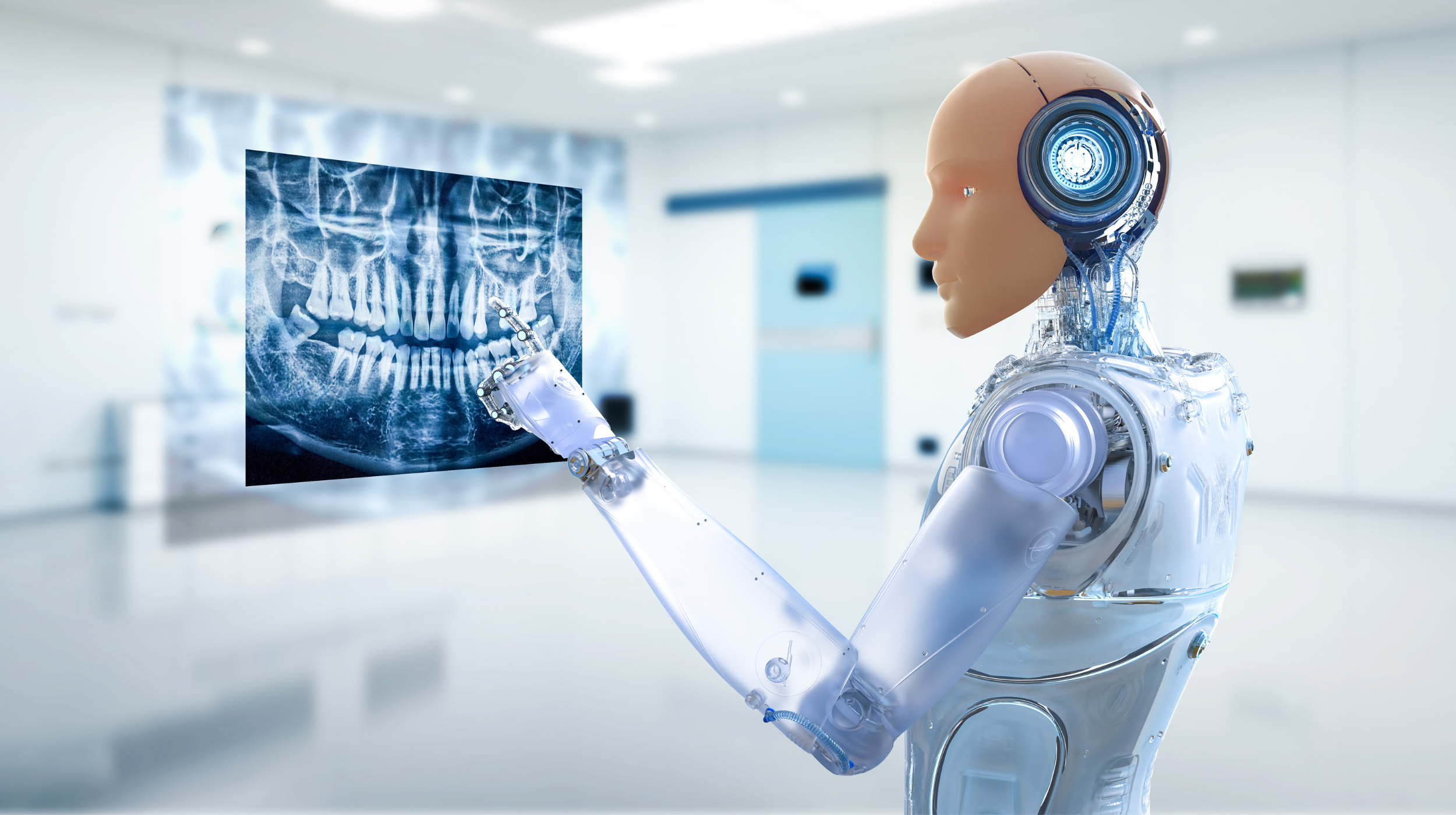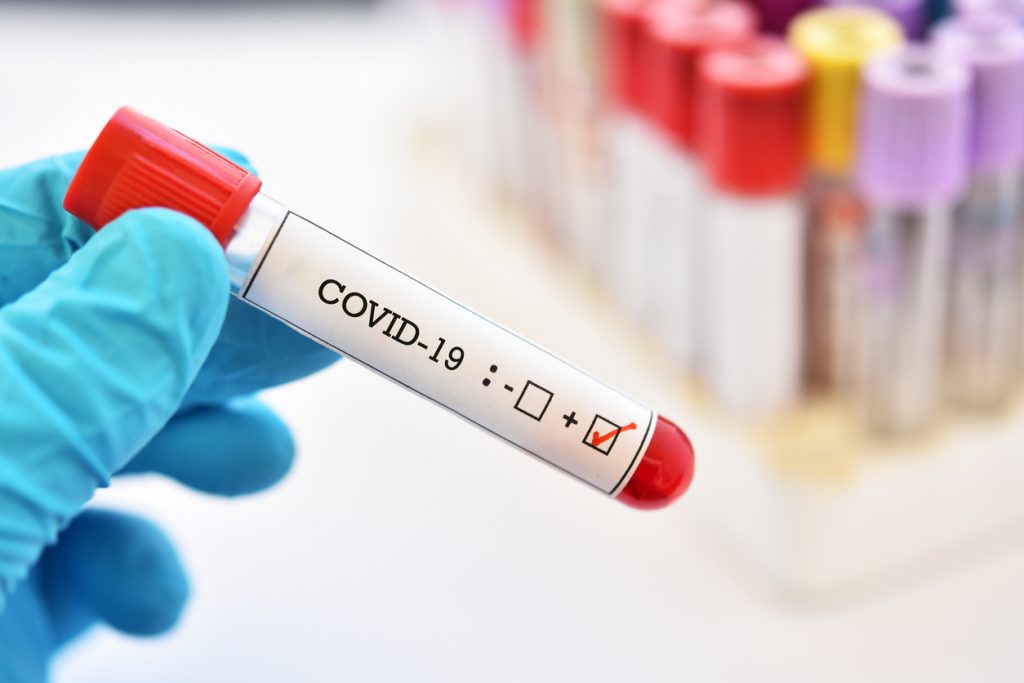Artificial Intelligence (AI) has become a major buzzword in recent years. While AI technology has been around for decades, the last few years have seen AI make massive leaps to become increasingly integral across various industries. From logistics to the broader field of healthcare and dentistry, AI is changing how we do things for the better.
Before worrying about robots taking your place to treat patients, know that AI-based systems are being created to support dentists in improving their work. By integrating AI, dental professionals can improve diagnostic accuracy, streamline treatment planning, and enhance overall patient care. AI’s ability to analyze complex dental data quickly and effectively helps dentists make more informed decisions and provide personalized treatments.
What is Artificial Intelligence in Dentistry?
AI in dental practice refers to using advanced AI-based algorithms and data processing applications to perform tasks that humans typically perform. As a dentist, performing dental procedures on your patients is only part of your work.
Working in this field also means you must analyze, interpret, and organize an overwhelming amount of unstructured data to make important decisions regarding patient care. Through the use of artificial intelligence in dentistry, dental practitioners can make these processes faster and more efficient.
AI-powered systems can process massive quantities of dental data and identify patterns to help dental professionals make informed decisions. The goal of integrating AI in dentistry is to achieve more accurate diagnostics for more efficient treatment planning.
How AI is Used in Dentistry and its Benefits
The revolution in the healthcare industry is unfolding through innovative applications of how to use AI in medicine. Within dentistry, AI has several uses, from helping with image diagnostics to improving treatment planning and patient management.

Using AI to Enhance 3d Denture Modeling
Artificial Intelligence is significantly transforming the prosthodontics field by enhancing the denture modeling process. Traditionally, creating a denture involves multiple steps, including manual measurements and the creation of physical molds, which can be time-consuming and prone to human error. AI technology streamlines this process by enabling the digital generation of 3D models of dentures, improving both accuracy and efficiency.
Achievion developed a digital solution that leverages AI to generate precise 3D models of dentures. This software allows dental technicians to upload a patient’s gum scan and input their dimensional characteristics. Using advanced algorithms, the AI analyzes the data and produces a CAD/CAM file containing the models of occlusal rims and shims, ready for lab fabrication.
The AI algorithms are highly precise, detecting intricate details from gum scans that might be overlooked by human eyes, ensuring a perfect fit and enhancing patient comfort and satisfaction. By automating the 3D modeling process, the software significantly reduces the time required to produce dentures, thereby speeding up delivery times for patients and boosting productivity in dental labs.
AI-powered 3D denture modeling represents a significant advancement in dental prosthetics, offering benefits in precision, efficiency, and customization. This technology enhances the workflow for dental professionals and improves patient outcomes, demonstrating AI’s transformative potential in dentistry.
Using AI for Diagnostic Imaging in Dentistry
Traditionally, dentists must use their training and experience to review the results of visual diagnostic tests to understand and derive meaningful conclusions regarding what a patient needs. These methods rely heavily on the skill and experience of a dentist. While it is how things have been done for decades, it leaves room for inconsistencies. Sometimes, the issues might not be too apparent in diagnostic test results, making them easy for the human eye to miss.
AI-powered diagnostic imaging tools can assist by detecting patterns and anomalies in the images that might not be visible to the human eye. For instance, AI can identify early signs of cavities, periodontal disease, and other dental problems from radiographs, providing dentists with a second opinion that helps reduce diagnostic errors.
AI tools also offer more precise measurements and assessments of bone density and other critical factors, aiding in the early detection and treatment of oral health issues.
AI for Dental Treatment Planning
Dentists create treatment plans for each patient based on results from various tests based on their training and experience. By analyzing the predicament of each patient, they compare historical data of other patients with similar issues to tailor treatment plans. However, pinpointing the best treatment can be challenging due to various factors like a patient’s health history and underlying conditions.
AI can be crucial to helping dental professionals identify and create personalized treatment plans. It can suggest the most effective treatment options by analyzing vast datasets of patient records, diagnostic images, and previous treatment outcomes. These AI-driven recommendations consider various factors, including patient health history, specific dental conditions, and treatment preferences.
AI-powered tools can also simulate different treatment scenarios to eliminate delays and trial and error. This way, dentists can visualize potential results and choose the best possible approach for each patient.
Additionally, predictive analytics through advanced AI algorithms can predict risks for patients. By comparing real-time patient data with vast datasets of historical data, AI-powered tools can identify patients with a greater risk of developing diseases. This can help dental practitioners provide preventive treatments proactively.
Artificial Intelligence for Patient Management in Dentistry
AI significantly improves patient management in dental practices by automating routine administrative tasks and enhancing patient engagement. AI-powered systems can handle scheduling, appointment reminders, and follow-up communications, ensuring patients stay informed and engaged with their dental care. AI can send automated reminders for upcoming appointments or follow-up visits, reducing no-shows and ensuring continuity of care.
AI chatbots and virtual assistants can provide patients with quick answers to common questions, assist in booking appointments, and offer personalized advice based on their treatment history.
Specialized AI-based tools can improve a dental patient’s experience, making it easier to manage their dental health. The ability of AI to analyze and process large amounts of data also helps dental practitioners manage patient records. AI can make it easier for dentists to track treatment progress, identify trends, and make well-informed decisions to improve outcomes for dental patients.
What are the Challenges and Considerations of Using AI in Dentistry?
Although the future of AI in dentistry shows a lot of promise, it does not lack challenges and ethical considerations. From data privacy to hurdles in regulatory compliance, algorithm bias, and the need for ongoing professional training, here are a few of the most crucial aspects to consider:
Integration with Existing Systems
One of the significant challenges in adopting AI in dental practices is integrating new AI tools with existing systems. Many dental offices use established electronic health record (EHR) systems and practice management software that might not be compatible with advanced AI technologies.
This integration requires careful planning and potentially significant investments in upgrading current systems or acquiring new software that seamlessly interfaces with AI applications. Successful integration also involves training staff to use the new tools effectively and ensuring data flows smoothly between systems without disruption.
Dental practices must work closely with technology providers to develop customized solutions that fit their specific workflows and technical environments.
Data Privacy and Security
Data privacy and security are critical concerns when implementing AI in dentistry. AI systems often require access to sensitive patient information, including health records, treatment histories, and diagnostic images. Protecting this data from unauthorized access and breaches is essential.
Dental practices must comply with regulations such as the Health Insurance Portability and Accountability Act (HIPAA) in the United States, which sets standards for safeguarding medical information. Ensuring data security involves implementing robust encryption methods, secure access controls, and regular audits to detect and address potential vulnerabilities.
Practices must also educate their staff on data protection best practices to prevent accidental breaches and ensure compliance with legal requirements.
Training and Adoption
Another challenge is adequate training and acceptance of AI tools among dental professionals. Introducing AI into dental practices requires a shift in how dentists and staff approach diagnostics, treatment planning, and patient management.
There may be resistance to adopting new technologies due to a lack of familiarity or concerns about replacing human judgment with automated systems. To overcome these barriers, comprehensive training programs are essential to help dental professionals understand how AI tools work and how they can enhance their practice.
Training should focus on demonstrating the practical benefits of AI, such as improved diagnostic accuracy and streamlined workflows, to encourage adoption. Additionally, involving dental staff in implementing and addressing their concerns can foster a more positive attitude toward AI integration.
Addressing these challenges is crucial for successfully incorporating AI into dental practices. By ensuring seamless integration with existing systems, protecting patient data, and providing adequate training, dental practices can leverage AI’s full potential to enhance patient care and operational efficiency.
Emerging Trends in AI Applications for Dentistry
AI adoption is increasing steadily in the dental industry, and the future holds more exciting possibilities. Some of the future trends for AI in dentistry include:
Advanced Diagnostic Imaging Capabilities
AI in dentistry is set to enhance imaging capabilities further, with algorithms becoming more adept at identifying complex dental conditions, including early-stage cancers and microscopic abnormalities. This advancement means dental professionals can detect and diagnose issues much earlier, allowing for timely interventions that improve patient outcomes.
AI algorithms will analyze dental radiographs, CBCT scans, and intraoral images with greater precision, helping dentists spot problems that might not be visible to the human eye. This increased accuracy in early detection can lead to more effective treatments and a higher rate of successful patient outcomes.
Telemedicine in Dentistry
The future of AI in dentistry includes more sophisticated teledentistry platforms, which will facilitate remote consultations, treatment planning, and follow-ups. These AI-powered platforms will allow dental professionals to care for patients regardless of their location, significantly increasing access to dental services in underserved areas.
Patients can consult with their dentists via video calls, receive treatment recommendations, and have follow-up appointments from the comfort of their homes. This convenience improves access to care and enhances patient compliance with treatment plans.
Robot-Assisted Dentistry
The combination of AI and robotics promises to revolutionize dental procedures. Robot-assisted dentistry will involve robotic dental assistants that can perform precise tasks under the supervision of human dentists.
These robotic systems will enhance the capabilities of dental professionals by reducing the physical strain associated with repetitive tasks and improving the accuracy of procedures. Robots equipped with AI can assist in tasks like tooth extractions, implant placements, and even routine cleanings, making dental care more efficient and less physically demanding for practitioners.
Improved Data-Driven Insights
AI will continue to leverage large datasets to uncover new trends and insights in oral health. By analyzing vast amounts of patient data, AI can help researchers understand disease mechanisms, treatment responses, and public health trends more deeply. These insights can inform better treatment strategies, guide public health policies, and drive innovations in dental care.
Final Thoughts
AI is revolutionizing dentistry by offering advanced solutions that enhance diagnostics, treatment planning, and patient management. From improving the accuracy of diagnostic imaging to personalizing treatment plans and increasing access to dental care through teledentistry, AI tools are transforming how dental services are delivered. As these technologies evolve, they will enable dental professionals to deliver more efficient, accurate, and personalized care. Leverage our proven expertise in developing AI-powered solutions tailored for the dental industry. Partner with Achievion to enhance your practice’s efficiency and patient care. Contact us today to explore how our customized AI solutions can drive your success.









